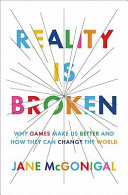External VS Internal Hapiness
Many different competing theories of happiness have emerged from the field of positive psychology, but if there’s one thing virtually all positive psychologists agree on, it’s this: there are many ways to be happy, but we cannot find happiness. No object, no event, no outcome or life circumstance can deliver real happiness to us. We have to make our own happiness—by working hard at activities that provide their own reward.15
When we try to find happiness outside of ourselves, we’re focused on what positive psychologists call “extrinsic” rewards—money, material goods, status, or praise. When we get what we want, we feel good. Unfortunately, the pleasures of found happiness don’t last very long. We build up a tolerance for our favorite things and start to want more. It takes bigger and better rewards just to trigger the same level of satisfaction and pleasure. The more we try to “find” happiness, the harder it gets. Positive psychologists call this process “hedonic adaptation,” and it’s one of the biggest hindrances to long-term life satisfaction. 16 The more we consume, acquire, and elevate our status, the harder it is to stay happy. Whether it’s money, grades, promotions, popularity, attention, or just plain material things we want, scientists agree: seeking out external rewards is a sure path to sabotaging our own happiness.
On the other hand, when we set out to make our own happiness, we’re focused on activity that generates intrinsic rewards—the positive emotions, personal strengths, and social connections that we build by engaging intensely with the world around us. We’re not looking for praise or payouts. The very act of what we’re doing, the enjoyment of being fully engaged, is enough.
The scientific term for this kind of self-motivated, self-rewarding activity is autotelic (from the Greek words for “self,” auto, and “goal,” telos).17 We do autotelic work because it engages us completely, and because intense engagement is the most pleasurable, satisfying, and meaningful emotional state we can experience.
As long as we are regularly immersed in self-rewarding hard work, we will be happy more often than not—no matter what else is going on in our lives. This is one of the earliest hypotheses of positive psychology, and a fairly radical idea. It contradicts what so many of us have been taught to believe—that we need life to be a certain way in order for us to be happy, and that the easier life is the happier we are. But the relationship between hard work, intrinsic reward, and lasting happiness has been verified and confirmed through hundreds of studies and experiments.
Notes:
Make your own happiness. Auto-telik
Folksonomies: happiness gamification
Taxonomies:
/technology and computing/hardware/computer components/disks (0.611885)
/science/medicine/psychology and psychiatry (0.597036)
/family and parenting/children (0.358424)
Keywords:
happiness (0.982757 (positive:0.543501)), positive psychologists (0.880821 (positive:0.299599)), Internal Hapiness Make (0.710474 (positive:0.540751)), different competing theories (0.710293 (positive:0.284950)), real happiness (0.690560 (positive:0.841981)), positive psychology (0.664313 (positive:0.575845)), long-term life satisfaction (0.643986 (negative:-0.253933)), rewards—the positive emotions (0.636664 (positive:0.661132)), lasting happiness (0.629237 (positive:0.756735)), plain material things (0.627654 (negative:-0.413448)), self-rewarding hard work (0.602292 (negative:-0.386868)), better rewards (0.478345 (positive:0.703683)), happiness—by working (0.477993 (negative:-0.400072)), biggest hindrances (0.471989 (negative:-0.253933)), External VS (0.469517 (positive:0.540751)), favorite things (0.451663 (positive:0.575609)), material goods (0.451487 (negative:-0.331566)), personal strengths (0.444278 (positive:0.364598)), sure path (0.442696 (positive:0.830047)), certain way (0.437807 (positive:0.486107)), easier life (0.437361 (positive:0.850752)), intense engagement (0.436237 (positive:0.478599)), social connections (0.435475 (positive:0.709789)), earliest hypotheses (0.434453 (positive:0.644091)), scientific term (0.433670 (positive:0.587108)), Greek words (0.432333 (neutral:0.000000)), self-rewarding activity (0.417532 (neutral:0.000000)), autotelic work (0.416800 (neutral:0.000000)), praise (0.303762 (negative:-0.494399)), status (0.296887 (positive:0.242634))
Concepts:
Happiness (0.956112): dbpedia | freebase | opencyc
Positive psychology (0.652297): dbpedia | freebase | yago
Psychology (0.443501): dbpedia | freebase | opencyc
Motivation (0.401287): dbpedia | freebase
Paradox of hedonism (0.389844): dbpedia | freebase | yago
Eudaimonia (0.373558): dbpedia | freebase
Hedonic treadmill (0.368225): dbpedia | freebase
Happiness economics (0.353071): dbpedia | freebase | yago





